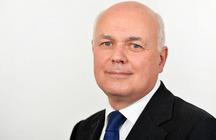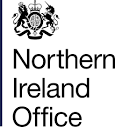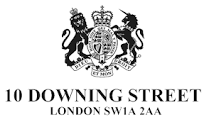Iain Duncan Smith – 2002 Speech in Bradford Launching the Local Election Campaign
The speech made by Iain Duncan Smith, the then Leader of the Opposition, on 15 April 2002.
We know about the national problems of crime, health and education.
But ultimately all of these are local problems.
It may be your street that is no longer safe to walk down, your local hospital where an elderly relative was stuck on a trolley for hours in A&E;, your local school where teacher shortages mean your child’s class has been cancelled.
It’s one thing to read about the state of our public services in the press, it is quite another to be confronted with them on your own doorstep.
To deal with the day-to-day impact of failing public services, we need to move decision-making closer to the people they affect; the personal level, the family level, the community level.
If we are to make life better particularly for the most vulnerable in our society, it is at the local level that we will need to deliver lasting improvements. That means restoring local government to its rightful place in the community.
It means turning local government into community government, where you spend more time pursuing the paramount interests of the residents you serve and less time implementing the wishes of a distant and disdainful centralised bureaucracy.
Trust the people
I would be the first to acknowledge that previous Conservative Governments have at times over-centralised but I believe that this Government has centralised more than any other.
We cannot afford to repeat that mistake if we are to deliver genuine improvements in our public services and to our quality of life.
We have to be prepared to believe in local government as a principal strand of Party policy.
We have to trust the people.
Trust the public servants and small businessmen, instead of tying them up in red tape.
Trust people with their own money, instead of clobbering them with ever higher council tax bills.
Trust people to get on with their own lives instead of running their community from Whitehall.
Trust local people to build communities.
Trust the local councillors who represent those communities.
Conservatives delivering better communities
And the basis of that trust will lie in the results that Conservative Councils are already achieving.
For all the red tape, Conservative councils are innovating in the best interests of their community and providing inspiring examples of how to enrich the local quality of life.
Here in Bradford, Conservatives have shifted the emphasis on new development from building on greenfields to redeveloping brownfield sites.
The Council stopped plans to turn school playing fields into a housing estate, and it is now bringing in millions of pounds of new investment by transferring council housing to not-for-profit landlords in the voluntary sector.
Conservatives delivering value for money
If you are going to trust councillors with more power, you also have to be able to trust them with the peoples’ money.
Again, it is Conservative councils who are leading the way.
This year, an average household in a Conservative council will pay £135 a year less on a Band D council tax bill than a Labour council and £159 a year than in a LibDem council.
Labour and Liberal Democrat councils have the highest council taxes in England – a reflection of years of financial mismanagement. Fourteen of the councils with the top twenty highest council taxes in England are Labour-controlled. None are Conservative.
But Conservative councils are not just delivering lower council taxes, but delivering better value for money for every penny raised. They collect more council tax and more council rents.
They have fewer empty council houses and cleaner streets.
The best rates of recycling are in Conservative controlled authorities.
The worst schools are in Labour and Liberal Democrat councils.
And it is those who rely on local services, the vulnerable, who are affected the most by the quality of the services they receive.
The number of homeless has risen by 12,000 since 1997-98 and the numbers of people in temporary Bed & Breakfast accommodation has trebled. More available affordable housing is crucial to these people.
It is Conservative councils have less empty council housing, and re-let vacant housing more quickly.
And it is the social services departments of Conservative councils who are among the most innovative in protecting the vulnerable and giving the disadvantaged a better chance in life.
Neighbourhood policing
But if there is one thing that hits the vulnerable hardest, it is surely crime.
In Britain today there is an imbalance of fear. People fear crime and disorder far more than our criminals fear authority.
Crime is afflicting every neighbourhood, and we need to fight back.
But we will not do so while policing is run from Whitehall with nothing but targets and more red tape, forcing our constables to retreat from the streets.
We need a different approach.
Officers need to know their neighbourhoods.
And neighbourhood yobs need to know their police officers.
That is what they have done in New York. The NYPD are no more than two minutes away from any crime that is reported.
As a result they massively reduced robbery, burglary, car and violent crime.
So we will deliver neighbourhood policing.
Why am I so confident that we will do this?
Because Conservative councils are already delivering it.
Conservative-run Bexley in London have put extra money into youth services, to increase social and recreational activities for young people, and backed that up with an integrated council-police team, based at a local police station, to tackle youth disorder.
Conservative Kent County Council have pioneered a community wardens scheme, supporting the police and providing a reassuring presence in rural areas.
This is a genuine innovation aimed at making communities safer, something which this Labour Government has failed to do, and other Conservative councils such as Kensington and Chelsea are introducing similar ideas.
Our councils didn’t wait for a central directive. They understood that their community wanted greater security, and they responded.
Conclusion
Delivery. That is the key to reviving public interest in local politics.
Turnout in local elections has fallen to alarmingly low levels, down from 45% in London and other areas in the late 80s and early 90s to barely a quarter today.
The Government’s solution is to suggest text messaging voting and other e-strategies to boost turnout. This misses the point.
The problem is not that voting is too difficult, but that abstaining is too easy. Put simply, not enough is at stake.
Where local residents can see a direct link between the way they vote and the quality of services they get, they are more likely to exercise their right to vote.
And the truth is, it does matter how you vote in local elections, because Conservative councils can make your life better.
We know that local residents’ daily lives are marred by problems like crime, vandalism, lack of discipline in our schools and a failing transport system.
But Conservative councillors are working to tackle these problems.
Conservative councils are delivering practical improvements to our streets and our public services, in rural, urban and suburban communities.
We have a strong record of delivery; we have a strong vision of genuine community government.
Let’s get out there and give more people the chance to enjoy the benefits of a Conservative council delivering for the local community.



